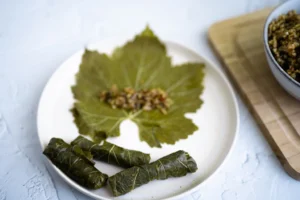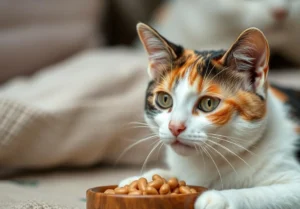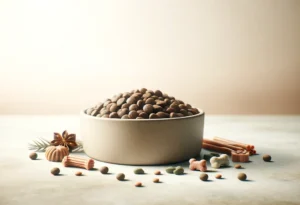Cats are known for their picky eating habits, turning their noses up at certain foods. Ever wondered why cats can’t have grapes? Find out the reasons behind this common caution below.
Cats lack the necessary enzymes to break down compounds found in grapes, which can be toxic to them. Additionally, grapes can lead to kidney failure in cats when consumed. Now, let’s dive into the specifics of why cats should steer clear of grapes.
The Toxicity of Grapes for Cats
Did you know that grapes can be extremely dangerous for your feline friend? While the exact compound in grapes that is toxic to cats is still unknown, it is best to err on the side of caution and keep these fruits away from your furry companion.
When cats ingest grapes, their bodies are unable to process certain substances within the fruit, leading to potentially severe health issues. Even a small amount of grapes can cause kidney failure in cats, making it crucial to keep these fruits out of reach at all times.
Remember, it’s always better to be safe than sorry when it comes to your beloved pet’s health. So, next time you’re snacking on grapes, be sure to keep them far away from your curious kitty!
Symptoms of Grape Poisoning in Cats
If you suspect that your cat has ingested grapes, it’s important to be vigilant for any symptoms of poisoning. Some common signs that your cat may have consumed grapes include vomiting, lethargy, loss of appetite, and abdominal pain.
In more severe cases, grape poisoning can lead to dehydration, increased urination, and ultimately kidney failure. If you notice any of these symptoms in your cat after grape ingestion, seek immediate veterinary care.
Remember, the sooner you address the issue, the better chance your cat has of recovering. Always keep an eye out for any unusual behavior in your pet, as early detection can make all the difference in their road to recovery.
Treatment for Grape Ingestion in Cats
So, your curious little feline managed to sneak a grape or two into their diet, huh? Well, grapes are a big no-no for our furry friends as they can lead to serious health issues. If you catch your cat snacking on grapes, don’t waste a second – rush to the vet immediately. It’s crucial to get professional help promptly as grapes can be toxic to cats and cause kidney failure.
Safe Alternatives to Grapes for Cats
Alright, let’s talk about some cat-friendly snack options that will keep your furball happy and healthy. Instead of risking their well-being with grapes, consider offering them small slices of cooked fish or even a few blueberries as a treat. Remember, it’s always better to be safe than sorry when it comes to your precious pet’s health. And hey, your cat will thank you for it with extra purrs and cuddles!
The Importance of a Balanced Diet for Cats
When it comes to our feline friends, it’s crucial to provide them with a balanced diet to ensure they stay healthy and happy. Cats are obligate carnivores, meaning their diet should consist primarily of meat.
While grapes may seem like a harmless snack, they can actually be toxic to cats. Grapes, along with raisins, can lead to kidney failure in cats when ingested. Even a small amount of grapes can be harmful, so it’s best to keep them far away from your curious kitty.
To ensure your cat’s diet meets their nutritional needs, opt for high-quality cat food specifically formulated for their dietary requirements. Look for options that contain protein from sources like poultry, fish, or beef, as well as essential vitamins and minerals. And of course, always provide plenty of fresh water for your furry friend to stay hydrated.
Remember, when it comes to feeding your cat, stick to what you know is safe and beneficial for their health. Keep those grapes out of reach and focus on providing a diet that will keep your cat purring with contentment!
Fun Facts About Cats and Their Taste Preferences
Did you know that cats lack taste receptors for sweet flavors? That’s right, your feline friend won’t be begging for a bite of your dessert anytime soon. Cats are more attuned to salty and savory flavors, which is why they often prefer meat-based treats over sugary snacks.
Another fun fact about cats and their taste preferences is that their sense of smell plays a big role in what they choose to eat. Cats have a remarkable sense of smell that helps them detect and enjoy their food. This is why enticing aromas can make mealtime even more enjoyable for your kitty.
So next time you’re tempted to share a snack with your cat, remember their unique taste preferences and opt for options that align with their natural diet. Your furry friend will thank you for keeping their taste buds and tummy happy!
Educating Others About Grape Toxicity in Cats
Hey there! Did you know that grapes can be super harmful to our feline friends? It’s true! Educating others about this important topic is key to keeping our cats safe and healthy.
When it comes to spreading awareness about grape toxicity in cats, it’s essential to share accurate information with friends, family, and fellow pet owners. Cats lack the necessary enzymes to digest grapes, leading to potential kidney failure if ingested. This is why it’s crucial to keep grapes and raisins away from our kitty companions at all times.
One way to educate others is by sharing informative posts on social media, writing articles for pet websites, or simply having conversations with other cat owners. The more people know about the dangers of grapes for cats, the better equipped they’ll be to protect their furry friends.
Remember, knowledge is power when it comes to keeping our cats safe. So spread the word about grape toxicity in cats, and let’s all work together to create a safer environment for our beloved feline companions!
Conclusion
As we wrap up our discussion on why cats can’t have grapes, let’s take a moment to reflect on the importance of understanding and respecting our pets’ dietary needs. Our cats rely on us to provide them with safe and healthy food options, and it’s our responsibility to ensure they stay away from harmful foods like grapes.
By being mindful of what we feed our cats and sharing valuable information with others, we can help create a safer environment for all feline friends. So let’s continue to educate ourselves and those around us about the dangers of grapes for cats, and together, we can ensure our beloved pets live long and healthy lives.
Alex, a passionate animal lover, has experience in training and understanding animal behavior. As a proud pet parent to two dogs and three cats, he founded AnimalReport.net to share insights from animal experts and expand his knowledge of the animal kingdom.




